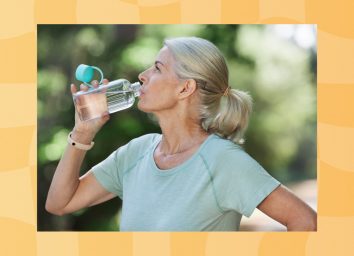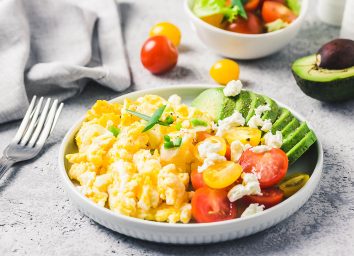The Complete Guide to What You Should Be Eating in Your 50s
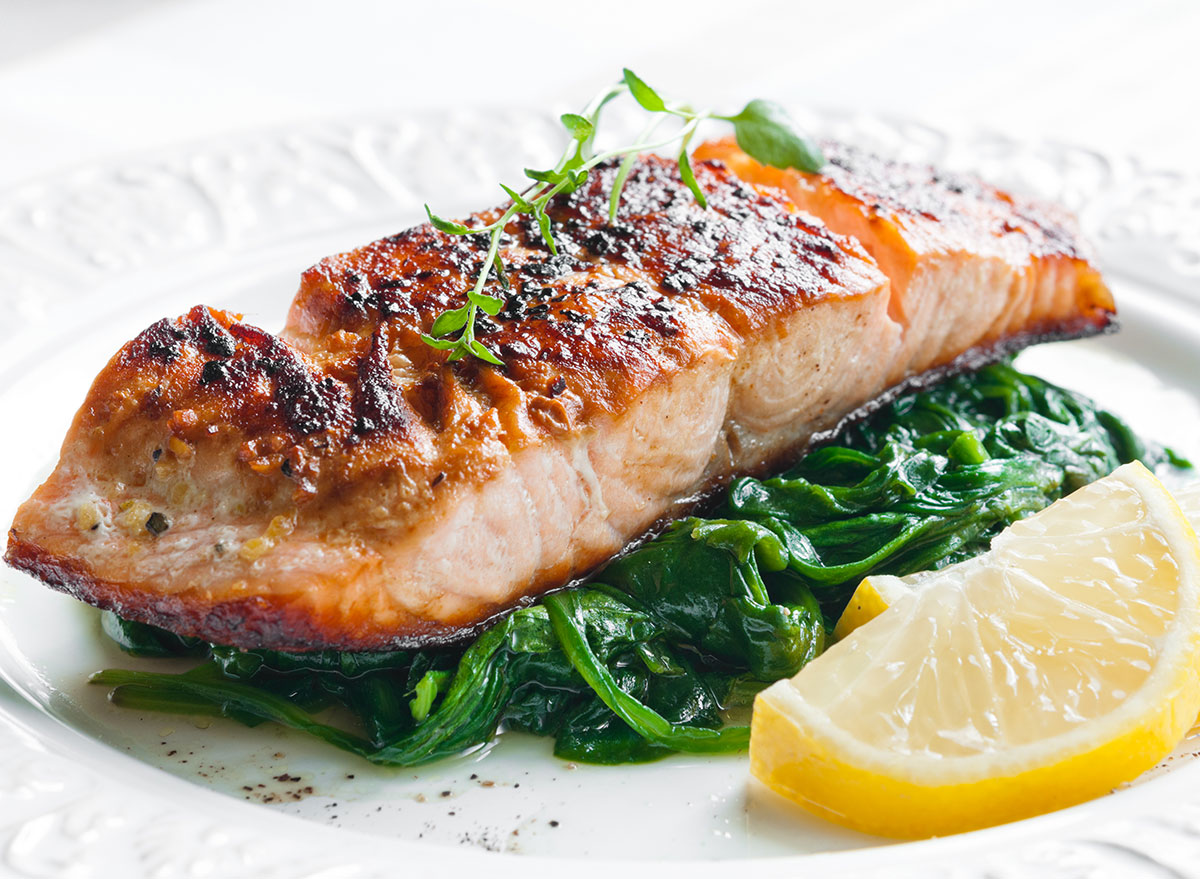
Whether you just turned 50 or have been in your 50s for a little while now, chances are your body is experiencing plenty of changes.
"This is the time of life when many of us notice increases in blood pressure, cholesterol, and blood sugar, which puts us at a higher risk for cardiovascular disease and diabetes," says Lauren Harris-Pincus, MS, RDN, founder of Nutrition Starring YOU and author of The Everything Easy Pre-Diabetes Cookbook.
Because of the ways your body changes in your 50s, it's important to shift your lifestyle and diet to match the new challenges that may arise.
We talked with multiple experts to get the complete guide to what you should be eating in your 50s. And for tips on how to stay active and motivated, make sure to read The Best Way to Get a Lean Body After 50, Says Science.
Avocado
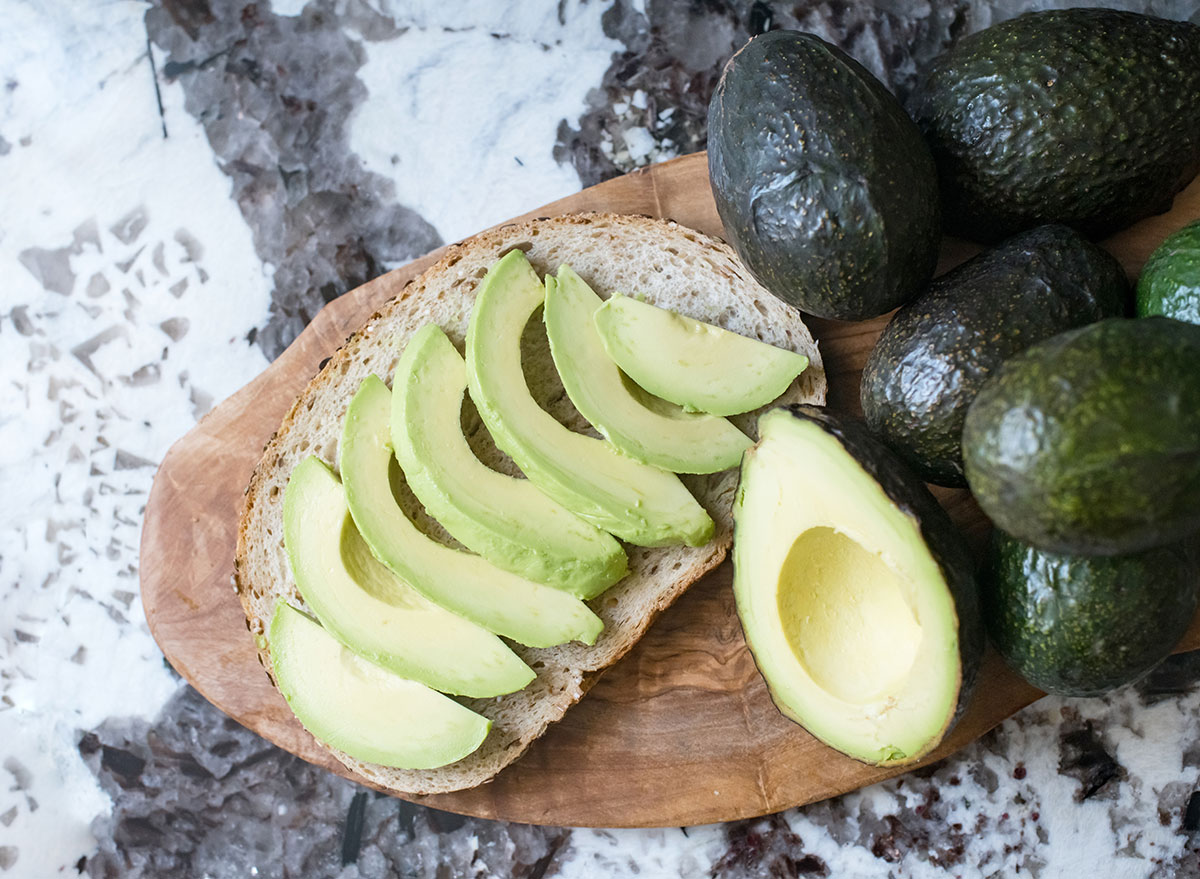
Avocados are a popular superfood for people of any age, but their nutritional value is especially helpful as you enter your 50s and 60s.
"Avocados are nutrient powerhouses and naturally full of antioxidants, fiber, and heart-healthy fats to keep your body strong on the inside and your skin glowing on the outside," says Laura Burak, MS, RD, author of Slimdown with Smoothies, and founder of Laura Burak Nutrition.
Olive oil
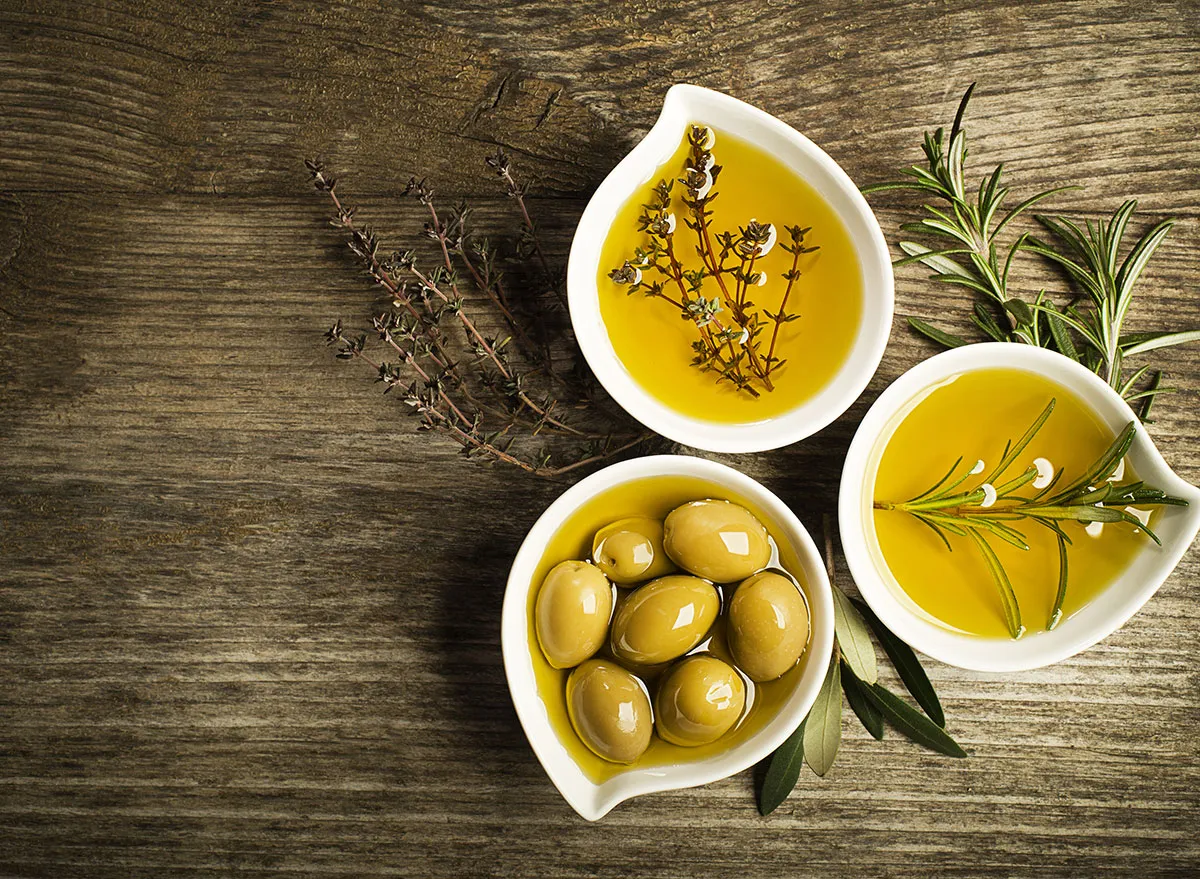
You can still increase your longevity even at 50, and one way to do that is by using olive oi.
"A staple of the Mediterranean diet, olive oil has been studied for decades as a key ingredient contributing to longevity in blue zones, or areas of the world where people live the longest," says Burak, "and this is because it is an excellent source of monounsaturated heart-healthy fats and antioxidants, which can reduce your risk of inflammation and chronic disease."
For more information on the Blue Zone diet and what it looks like to eat this way, check out The #1 Best Diet for a Longer Life, Says Dietitian.
Wild salmon
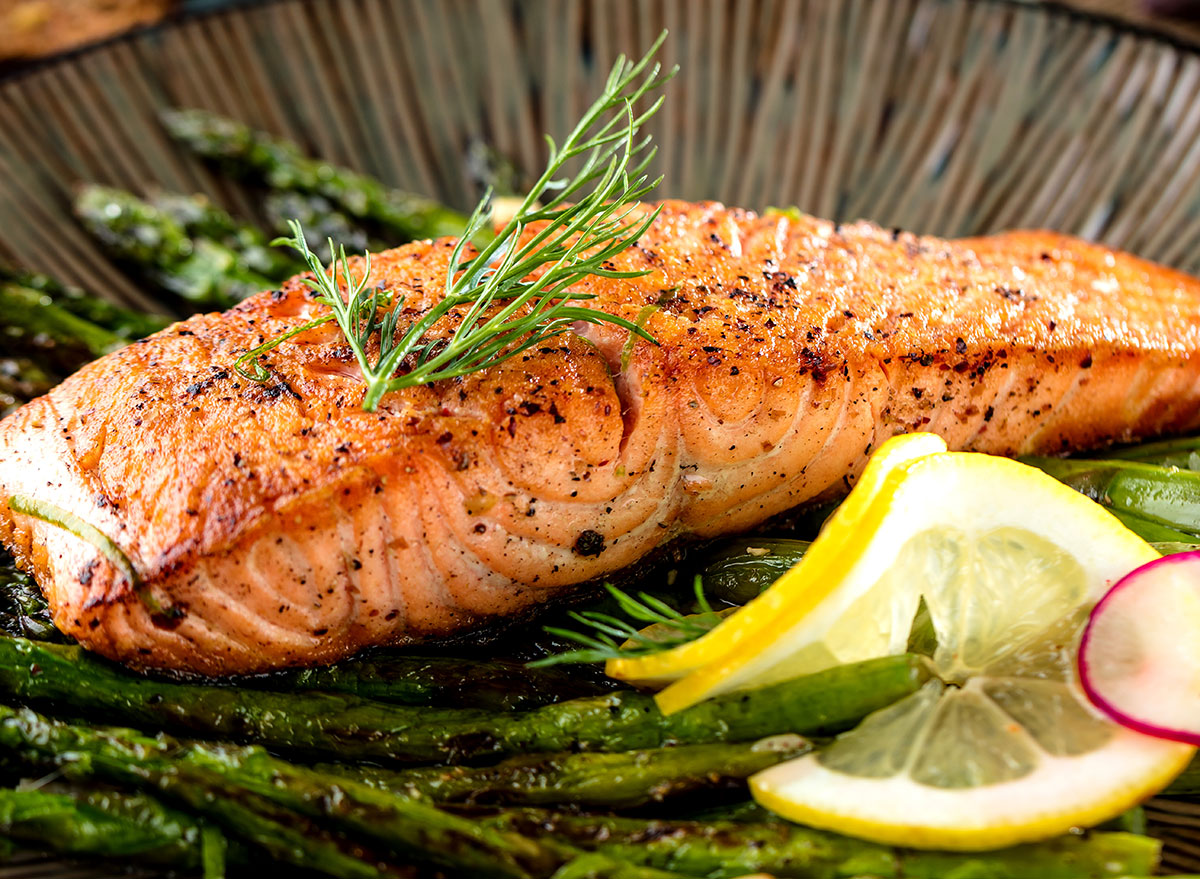
Salmon is an incredible source of healthy fats and antioxidants and has been proven to help improve heart health and reduce inflammation in the body.
"Fish oil from wild sources like salmon, which is high in omega-3 fatty acids, can possibly slow down aging by preventing heart disease and the progression of dementia as it supports brain health," says Burak.
Blueberries
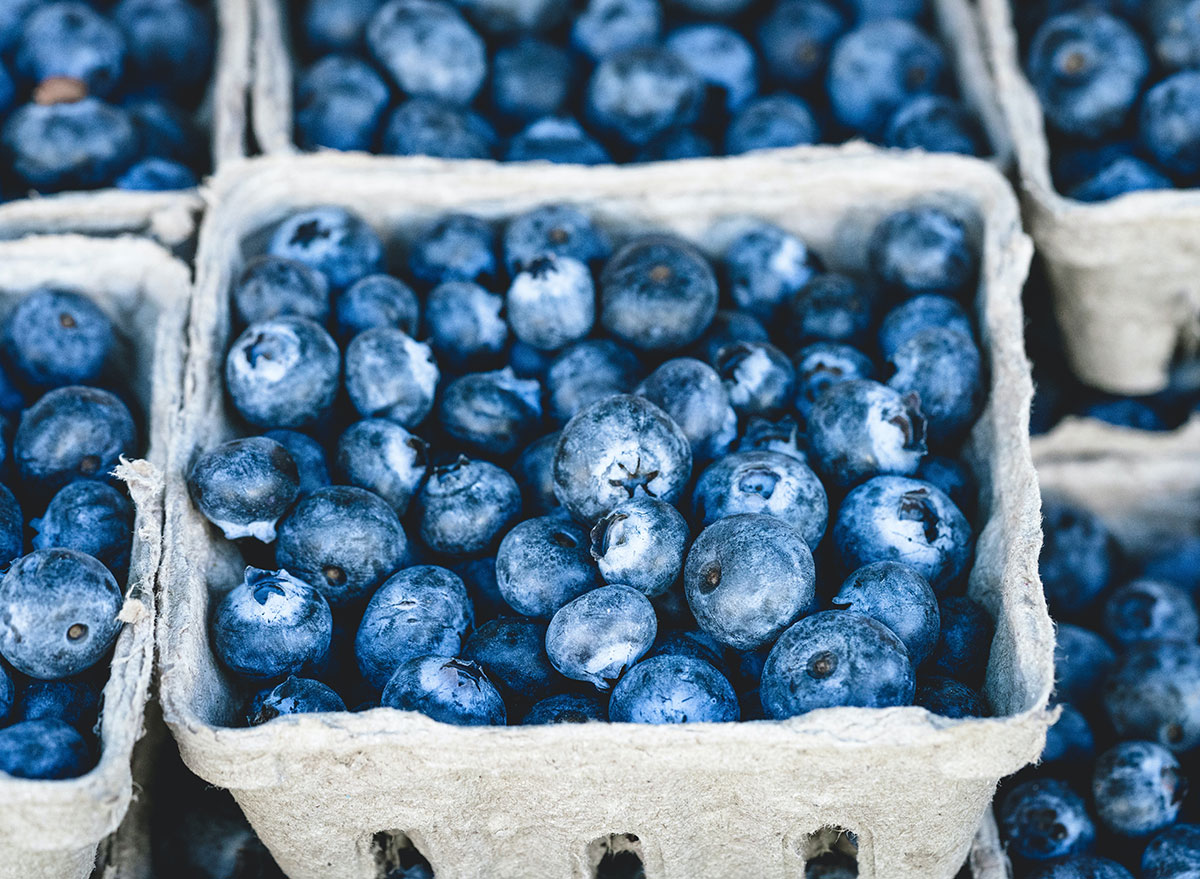
According to Jamie Feit, MS, RD, owner of Jamie Feit Nutrition, blueberries are another great food to eat in your 50s.
"Blueberries are loaded with vitamins, fiber, and antioxidants, and have been known to lower blood sugar, lower cholesterol, and keep you full," says Feit.
Brazil nuts
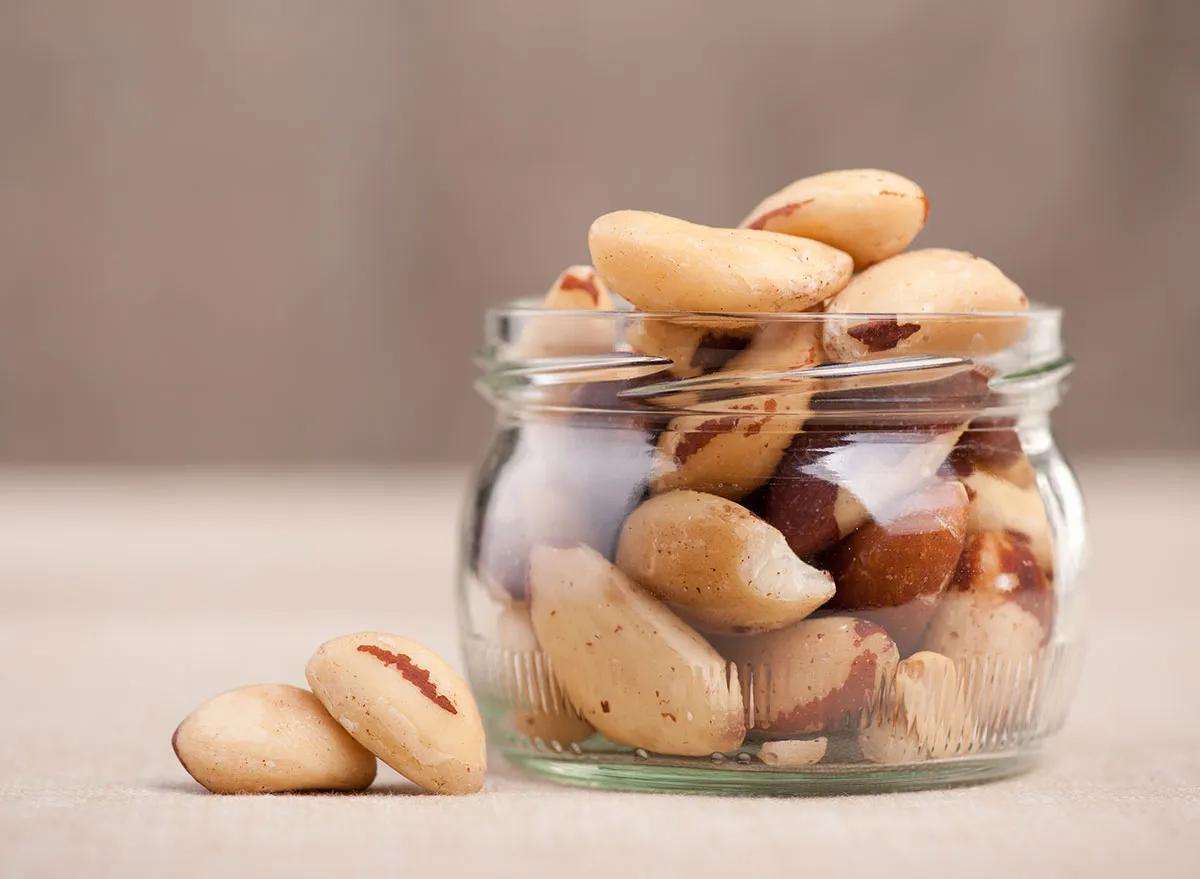
Not only are brazil nuts a delicious and low-calorie snack, but they're also full of a helpful mineral called selenium.
"Selenium is a mineral that works in the body to provide antioxidants that decrease inflammation and help your immune system to function properly," says Feit. That's particularly important after 50 because one of the most recognized consequences of aging is a decline in immune function.
Flaxseeds
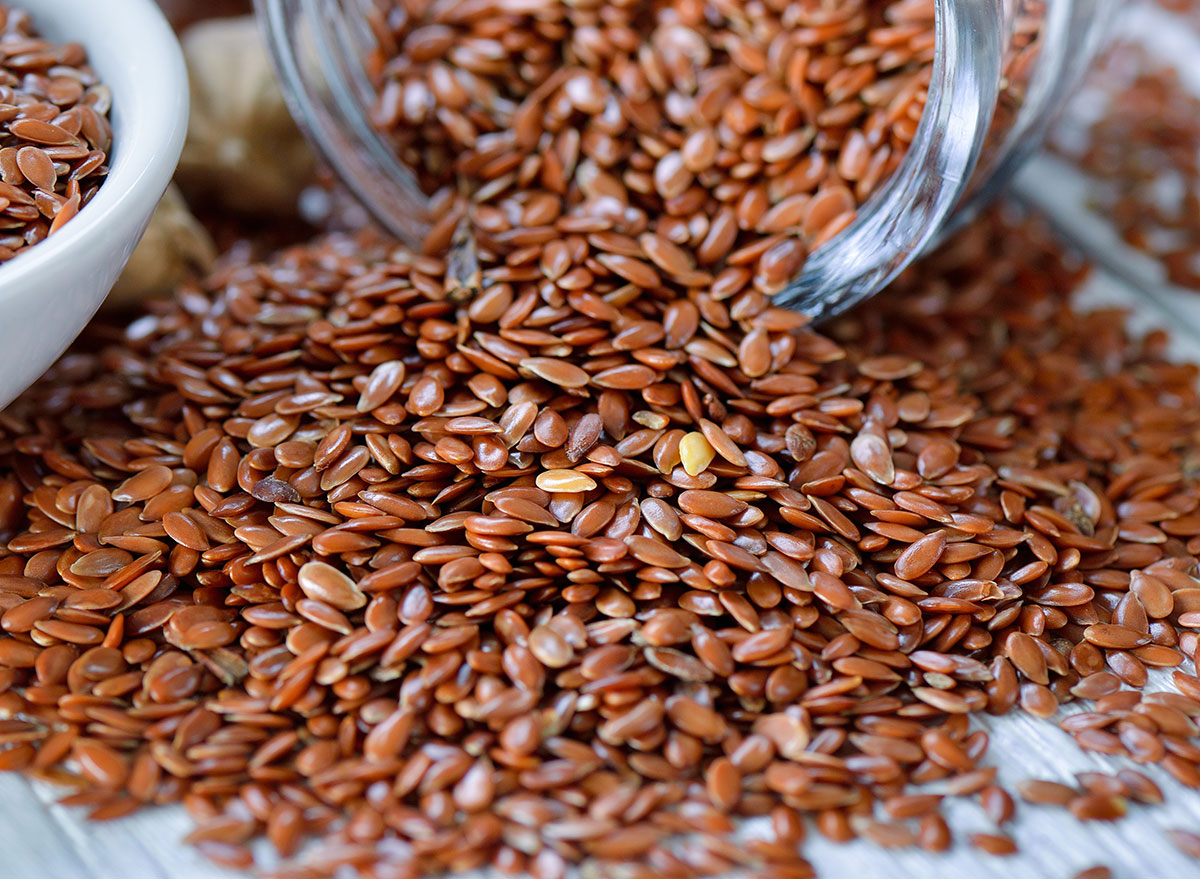
Flax seeds are a powerhouse for health benefits and have been linked to lowering blood pressure, lowering cholesterol, and even helping block the formation of cancer cells.
"Flax seeds are also a great source of omega-3 fatty acids and can help with clearer skin, joint and bone health, and even help improve your mood," says Feit.
If you're looking for a delicious way to incorporate more flax seeds into your diet, try making these Flax Seed Buttermilk Pancakes.
Walnuts
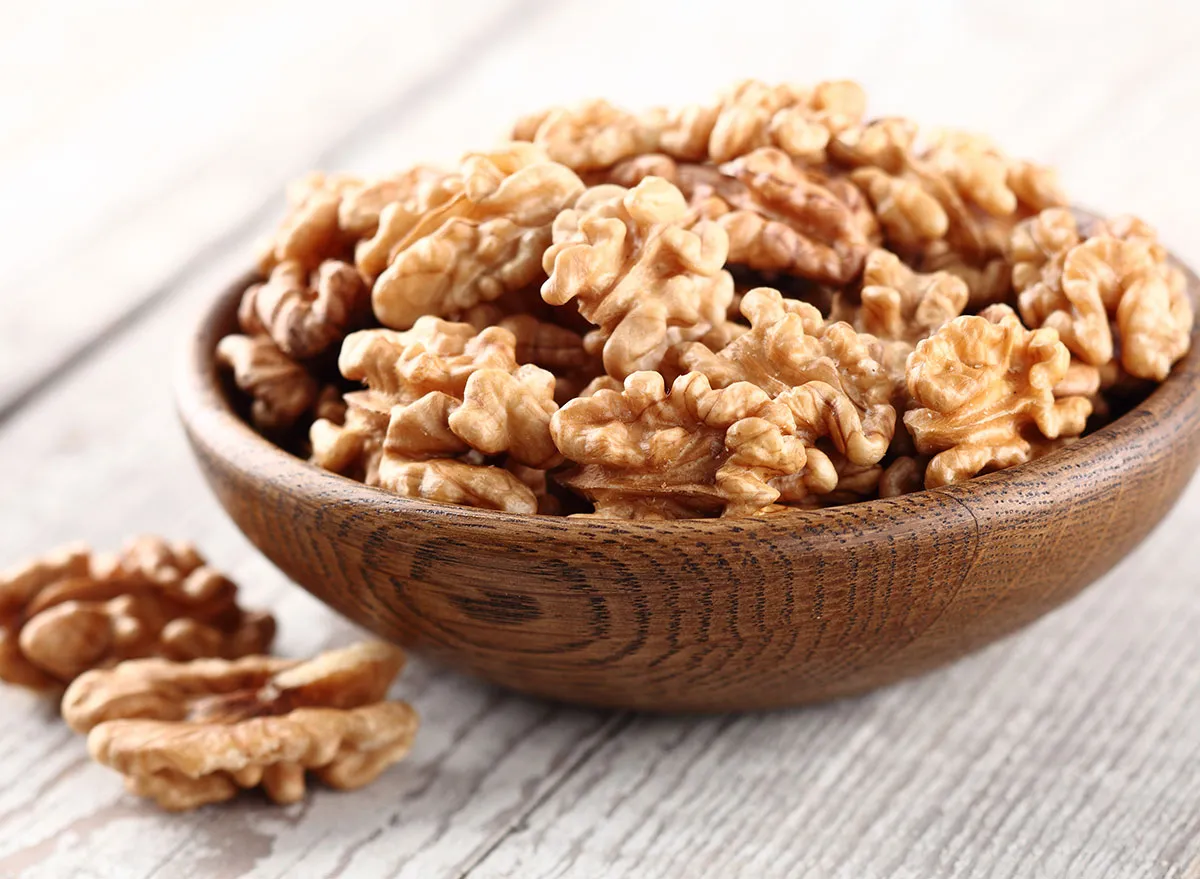
Walnuts have been known to lower LDL cholesterol, which is the "bad" cholesterol, and according to Elizabeth Ward, MS, RDN, co-author of The Menopause Diet Plan, A Natural Guide to Hormones, Health, and Happiness, they can improve your brain health as well.
"A recent study found that people who ate 5 servings of walnuts weekly had a 14% lower risk of death (from any cause), 25% lower risk of dying from cardiovascular diseases, and gained more than one year of life expectancy compared to people who ate no walnuts," says Ward.
Beans
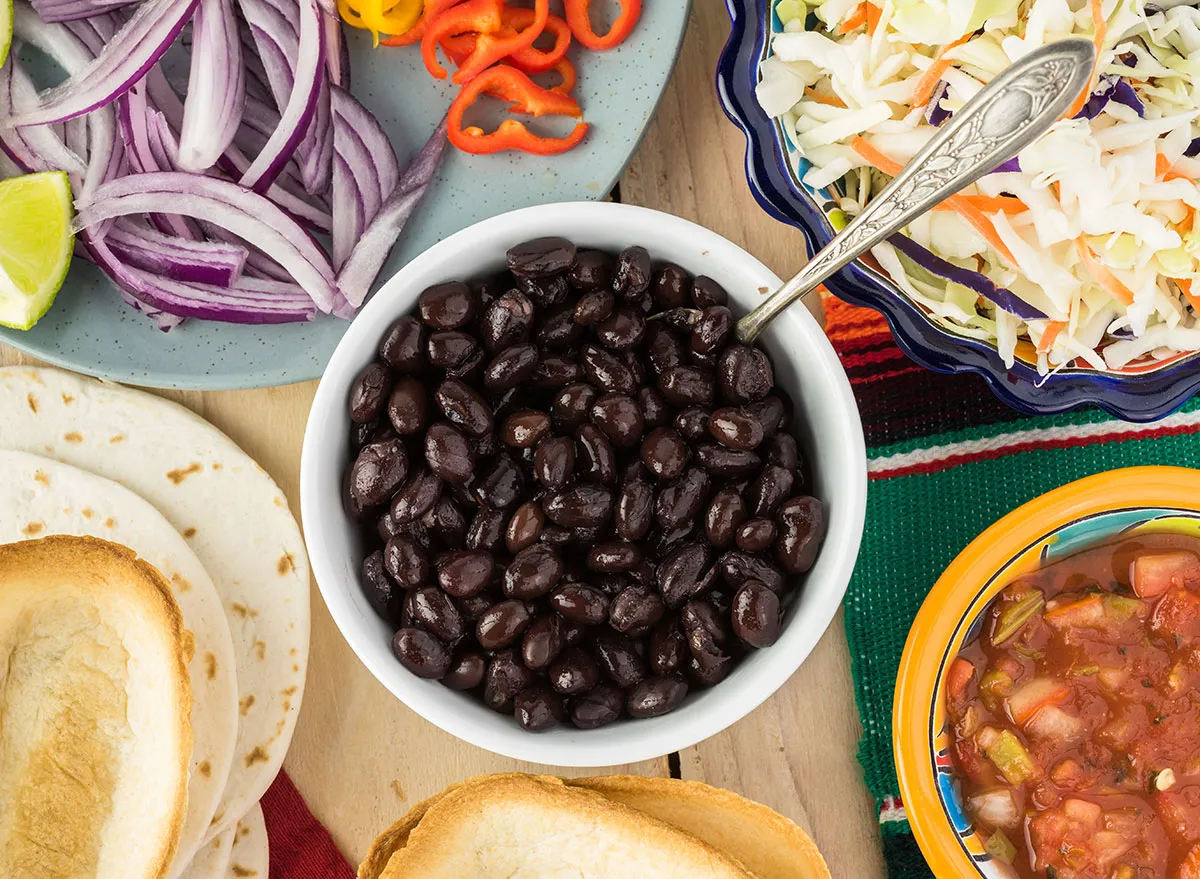
Some people may not realize that beans are one of the most important foods to eat for healthy aging.
"Beans are a source of both soluble and insoluble fiber, potassium, and have been shown to help trap cholesterol in the GI tract, as well as help to control blood sugar," says Pincus, "and they also contain plant based protein, as well as copper, phosphorus, manganese and magnesium which are nutrients that many Americans don't consume in adequate amounts."
According to Pincus, the U.S. Dietary Guidelines for Americans recommend eating about 3 cups of legumes, including beans, per week which works out to about 1/2 cup per day.
Oats

Oatmeal has proven time and time again to be a reliable, healthy addition to any diet, especially for those above the age of 50.
"Oats are a source of the soluble fiber beta-glucan, which has the benefit of binding with cholesterol as well as helping to control blood sugar and contributing to a healthy gut while keeping you full longer," says Pincus, "and oats also contain antioxidants that can help to reduce inflammation and contribute to cardiovascular health."
Read these next:
